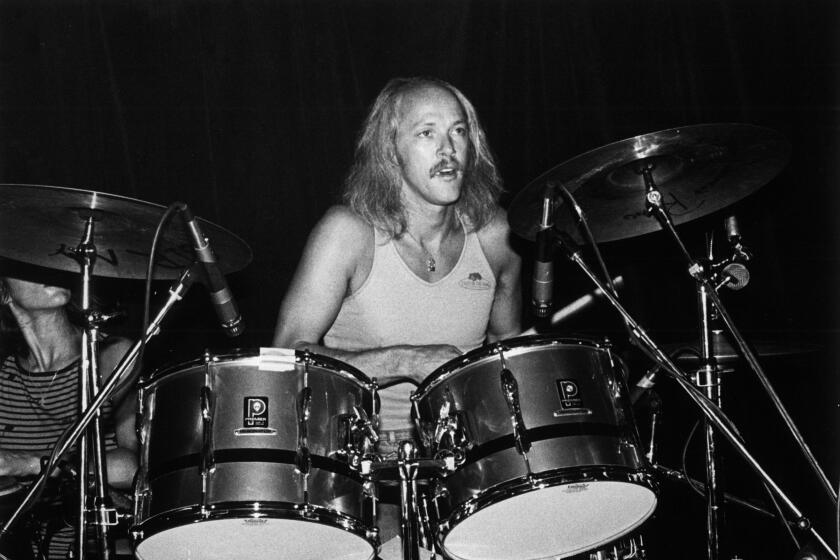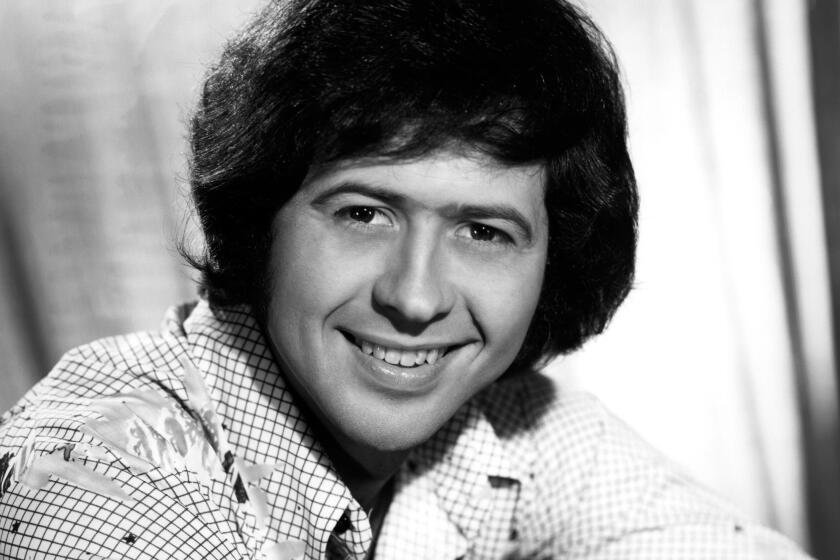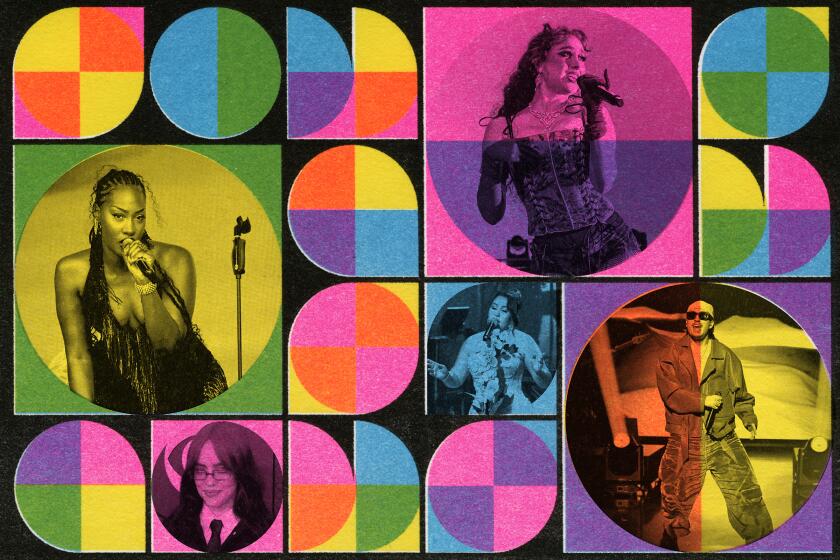Joni Mitchell, Elton John and more on ‘Blue,’ 50 years later
This week marks the 50th anniversary of the release of Joni Mitchell’s “Blue” album, and amid all the richly deserved hosannas sent “Blue’s” way here and elsewhere, Mitchell herself seemed to express some mixed feelings about the album, or at least its place in history.
“Sometimes I wonder why it got all the attention, and not my other ‘children,’” she told Cameron Crowe in a Times exclusive. “‘Court and Spark,’ ‘Hejira’ ... I think they all got pretty good from ‘Blue’ on.”
She then went on to describe the reaction the album originally received from critics and peers.
“Like all of my albums, ‘Blue’ came out of the chute with a whimper... Now there’s a lot of fuss being made over it, but there wasn’t initially. The most feedback that I got was that I had gone too far and was exposing too much of myself... The initial response I got was critical, mostly from the male singer-songwriters. It was kind of like Dylan going electric. They were afraid. Is this contagious? Do we all have to get this honest now?”
That tinge of sourness, still sharp on Mitchell’s tongue, only affirms the singularity and boldness of Mitchell’s achievement 50 years ago. In an age of extreme sharing, it’s easy to take for granted how profoundly brave and political Mitchell’s confessional songwriting was in 1971. Today, “Blue” is the lodestar for most every female singer-songwriter with a bent toward bloodletting, and many of her male singer-songwriter peers — David Crosby and James Taylor to name just two — rightfully fall all over themselves to sing its praises.
It’s also true, especially after “Blue,” that many of Joni’s “children” neared or equaled “Blue’s” genius. As Jenn Pelly writes, “Mitchell moved on to the visionary jazz-fusion experiments of ‘The Hissing of Summer Lawns’ and the landmark ‘Hejira,’ a sprawling bookend to ‘Blue’ that has become, in recent years, her most influential record.” Still, concludes Pelly, “‘Blue’ made it all possible.”
This week, the Times commemorated the anniversary of this L.A. classic with a series of interviews, essays and tributes. “She converts pain and loneliness and sadness and failure and struggle into emotionally moving sound,” wrote her onetime producer and champion David Crosby. “Every time I listen to it, I am moved to tears. It’s just that strong.”








